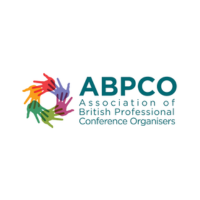Accelerating organisational change
)
Earth Day is on 22 April, drawing our attention towards the protection of the environment, so our guest editor for this month’s Take Note newsletter is Emily Shephard, TRACE Community Manager at isla.
With businesses taking a greater interest in their carbon footprint as sustainability moves higher up on the agenda, Emily takes a look at how the industry can accelerate organisational change and why event carbon metrics are about more than just numbers.
People are at the core of any successful element of a sustainability strategy and that applies to measurement too. In the dynamic world of event planning and execution, the spotlight on sustainability is intensifying. As the commitment to sustainability grows, so does the emphasis on showcasing the return on investment (ROI). Measuring the environmental impact plays a vital role in evaluating the time and resources dedicated to achieving sustainability goals and ultimately determining strategy success. Measurement needn't be purely quantitative data, there are rich valuable qualitative insights that can paint a much bigger picture of the impact beyond the success of the event itself.
Your event carbon measurement numbers ultimately tell the story of how people came together for a common goal of supporting the needs of our changing planet. This may have entailed upskilling of teams, via learning to interpret sustainability reports and strengthening communications, alongside discovering innovative teamwork approaches, and fostering effective collaboration between suppliers, venues, clients and event organisers. Reporting on the success, and failure, of this collaboration alongside the quantifiable carbon metrics can help strengthen your relationships with your supply chain. Moreover, it can garner further business support by showcasing the tangible success of the sustainability strategy and goals for carbon reduction and your organisation’s net zero pathways.
The process of gathering and reporting on event impact data also reveals the cultural practices and event-delivery principles that are unique to your organisation. Viewing sustainability as a core value which is equally important as creative, audience or any other event performance metric will ensure that sustainability practices become company culture, helping strengthen team morale and identification with your organisation's purpose-led ambitions. Teams become more conscious of their actions, and in turn, this sense of ambition is translated to your delegates, through engagement with new initiatives and storytelling at each touchpoint. Ultimately ensuring the sustainability legacy of your event, beyond the tangible successes you can seen in the metrics.
Whilst reporting on your carbon footprint can quantify tangible progress towards your sustainability goals, capturing the learnings from implementing these initiatives along the way will be of far greater value in achieving longer-lasting innovative and sustainable change. What challenges did you face? What success can you repeat and build upon for the next event? What initiatives worked and which didn’t? Where are there gaps in your data? Or maybe you could improve the quality of the data you collected? Asking ourselves these questions and taking these continuous learnings forward is what helps us see both beyond the numbers and also catalyses the reduction of the numbers year-on-year, event-to-event.
Saying ‘yes’ to carbon measurement is committing to implementing organisational changes. Sharing this journey as more than just metrics can foster more meaningful collaboration across the industry, improve communication, spark creativity across your whole organisation and gain support from a multitude of stakeholders. All of which is fundamental to achieving an equitable and inclusive net-zero transition.
WHAT I’VE TAKEN NOTE OF
The podcast series ‘Less but Better’ by Farmerama is a nuanced discussion around diet, starting specifically with the meat that we consume. Switching the focus from complete abstinence to a more considered look at what we eat and how it's farmed is a mindset translatable to all aspects of how we live more sustainably.






















.png)















